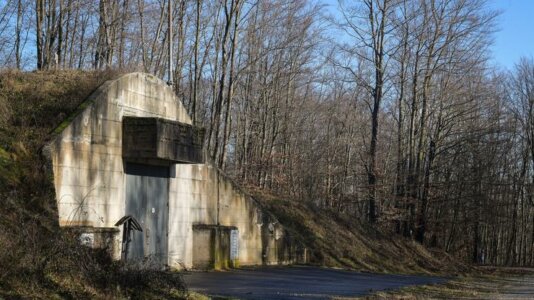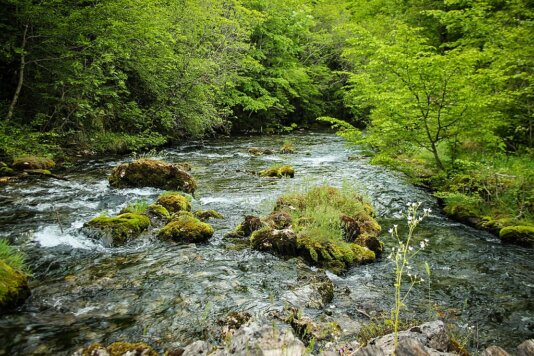- About
- Topics
- Picks
- Audio
- Story
- In-Depth
- Opinion
- News
- Donate
-
Signup for our newsletterOur Editors' Best Picks.Send
Read, Debate: Engage.
| January 14, 2022 | |
|---|---|
| topic: | Climate action |
| tags: | #climate change, #conservation, #activism, #global-warming, #Bosnia |
| located: | Bosnia and Herzegovina |
| by: | Katarina Panić |
In the 12 elections - both local and national - I have covered as a journalist in Bosnia so far, not once did I hear a political figure mentioning climate change or global warming. Not even after the events of last summer, when a drought virtually destroyed the country's entire agricultural produce.
The term environment, however, is nonetheless referenced in governmental programs (although it is usually at the bottom of the list of priorities). Moreover, it is present there more because of the subject's popularity- not because it is viewed as an essential issue.
"It is equally frustrating that even when environmental topics are by any chance on the table, it is always at the end, the latest agenda item, or, even worse, within 'other questions'," Darko Dragić, a local ecological inspector, said while addressing a community safety forum in the Bosnian town Prijedor last month. "It also shows the lack of interest for facing the issue if you put these themes only incidentally."
There are several reasons why developing countries such as Bosnia hardly address environmental protection issues and why their citizens do not express greater objection to the lack of strategic approach in this sphere.
Firstly, in emerging democracies, various informal practices undermine formal institutions. And since both the public sector and public funds are severely damaged by corruption, living standards are below average.
"Countries that have well-resolved economic and social issues have a systematic approach to the topic of the environment. It is kind of horrible to hear the statements of foreign officials that we have so many natural resources and that we are [such a] poor country," said Tihomir Dakić of the Centre for Environment at a panel discussion of Bosnian environmental activists called How to save the earth from the state; the discussion, organised by the media outlet Buka, was held in Banja Luka, last month.
"According to the World Bank," Dakić added, "we are the third country in Europe regarding drinking water supplies. Drinking water has been a commodity since a few years ago."
However, as politicians are unable to maintain power by facing the real problems that afflict ordinary citizens, they continue to resort to nationalistic rhetoric in order to rally voters around a common enemy and exacerbate existing divisions between Serbs, Croats and Bosniaks, (i.e. Orthodox, Catholics and Muslims). Nature, however, does not know borders, and thus offers no exploitable talking points for retrograde local politics.
Furthermore, environmental issues, by nature of being distressing, are something that people instinctively run away from. Another reason why people may avoid engaging with issues concerning climate change and the environment is that they often seem like abstractions that don't affect the here and now. This, of course, is a result of the illusory perception that we are not responsible for environmental degradation and exist separately from nature.
Mario Crnković of the Novi Grad-based Green Team gave a clear example of this problem at the panel discussion: "Radioactive waste has a shelf life of up to 300 years, and the decision on whether Croatia will store its waste on the border with BiH and near the Una River is now being made. So, we are responsible for someone who will be born in 250 years. People are not aware of this enough and run away from such a heavy responsibility by either shifting the responsibility or burying their heads in the sand."
"Unfortunately," he continued, "it is not realistic to expect the ill-equipped state to protect citizens although it is its obligation. We will be protected as much as we fight. We, ordinery citizens who do not want the radioactive waste near river had just addressed the ombudsman and they obliged the state government to provide all the information related to this unsolved issue between Bosnia and Croatia“, he added.
The drastically imbalanced starting points of the players involved in this struggle is another factor that often discourages people from getting involved. On the one side are ordinary people, citizens and activists who are motivated by goodwill and enthusiasm and are often supported by a few law experts in this field, who usually work pro bono. On the other side there are various interest groups that are disproportionately powerful; those are, mainly, local and international politics and businesses.
“Once, I asked the Austrian embassy in Bosnia about their company building a hydropower plant at the Sana river. They said they were allowed to do so by Bosnian authorities and, therefore, our government is to be addressed, not them," Dakić said. "However, it never is too late to protest. Everyone may contribute - financially, politically, professionally. Small groups always incite the changes. There are no reasons for being passive. Whoever seeks an excuse actually washes their conscience. Processes are important, even when the outcome is not favourable."
Image by Wikimedia Commons
By copying the embed code below, you agree to adhere to our republishing guidelines.


